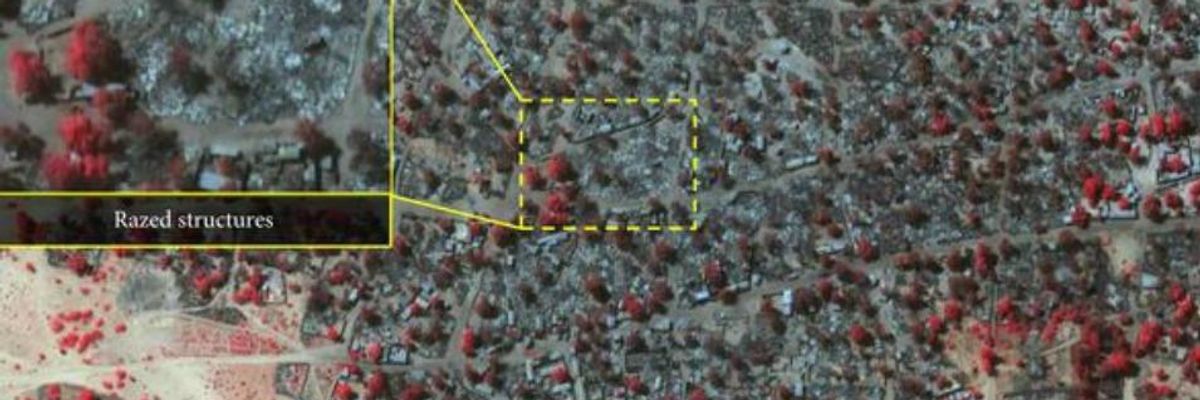The UN has called on Nigeria to restore law and order in the northeast and investigate mass killings alleged to have been carried out in the past few weeks by the militant group, Boko Haram.
Boko Haram's the same lot that last spring kidnapped 276 girls, most of whom have never been recovered. This January, while world attention was focused on the killings in Paris, Boko Haram waged an assault on two northern towns. Satellite imagery "before and after" shows Bega and its neighbor razed to the ground.
The Nigerian government says 150, human rights groups say more than ten times that many were slaughtered. The exact numbers are hard to confirm. But one thing's pretty certain: if what's been dismissed as a religious squabble in the north was taking place in Nigeria's oil pipeline territory in the south, neither the government in Ajuba, nor the world's most powerful nations, would be watching the violence escalate.
Black lives don't matter as much as white to the West, that's clear. But everywhere #profitsmattermost.
Western media stereotypes notwithstanding, Nigeria's not some tin-pot state. The largest economy on the continent, a founding member of OPEC, one of the world's leading oil producers, it's not the government that's poor, only the vast majority of its people. Nigeria's seen billions of oil dollars flow through it, the lion's share to corporations including Chevron, Exxon and Shell, but the oil giants have kicked back plenty to Nigerian leaders, elected and not, in exchange for protection.
As a result, the military's annual budget today exceeds $6bn, and they've never been reluctant to use it to protect pipelines.
In the mid 1990s when demonstrations by the people of Ogoniland threatened to shut down oil production, much of the Niger Delta was put under military rule and "maintaining law and order" led to the killing of leading Ogoni activists including Ken Saro Wiwa.
Nigerians are going to the polls in mid February. President Goodluck Jonathan may be replaced. But it's the wealth that needs shifting, not just the politicians in Nigeria. More oil money going to taxes, and things the Ogoni activists were demanding, like schools and clean water, might have produced more democracy and less corruption, and perhaps less of that military budget would be ending up in generals' pockets. Who knows? If poverty was a bit less dire and popular discontent a bit less severe, Nigeria just might be less fertile territory for misogynist maniacs promising power and vengeance.
Would the West care more if Nigerians were white? No doubt. But one thing's for sure, if you could make money from school girls, the most powerful people in the world would be all over this.
